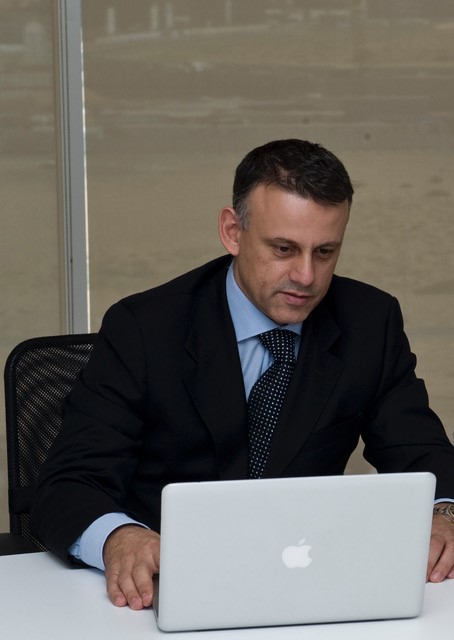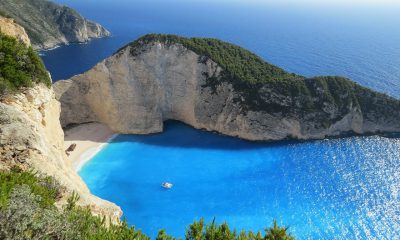
flickr/european_parliament
In July, the European Parliament adopted the ‘Reda report’ on copyright. Pirate Party MEP Julia Reda’s report focuses on the functionality of the current Infosoc Directive, and is broadly seen as a bellwether for the coming copyright legislation. But it is also seen as a potential threat to authors and artists, who will see their creations turn into merchandise.
The recent articles about the Reda Report have focused a lot on the so-called ‘Freedom of panorama.” This is just the tip of the iceberg and if you read even further between the lines, you will realize that there is a change of status for cultural creation, which is downgraded to a simple merchandise.
The freedom of panorama only reveals how the Reda Report is controversial, even among the MEPs working on the topic. The plenary session decided to remove the proposal that would “restrict the freedom of panorama,” despite efforts from French MEP Jean-Marie Cavada from the Alliance of Liberals and Democrats for Europe, who insisted that the commercial use of pictures of public buildings and sculptures should require authorization from the rights-holders (architects or designers). So the MEPs decided to keep the status quo – thereby allowing countries to decide for themselves whether or not they would allow freedom of panorama.
The need for a reform at a European level is therefore questionable, since the exceptions are numerous. The report was amended over 550 times and seemed to lose a little more of its substance with each amendment.
Commissioner Gunther Oettinger is due to present his proposal before the end of this year and yet the task seems almost impossible, considering how the Reda Report has blurred the lines even more. The Parliament also rejected the attempt “to pave the way for an ancillary copyright for press publishers, also known as the ‘Google tax’. “Virtually all the value generated by creative works is transferred to digital intermediaries, which refuse to pay authors or negotiate extremely low levels of remuneration.” according to Cavada. Based on Julia Reda’s view, it is just merchandise and should be treated as such.
“The problem with ancillary copyright rules is that they create a business climate that favors incumbent companies in both press publishing and the digital economy – as only the biggest players have the infrastructure to deal with such rules,” said Jakob Kucharczyk, Director of the Computer and Communications Industry Association of Europe.
But the so-called collecting agencies have largely disagreed. Cécile Despringre, executive director of the SAA (Society of Audiovisual Authors), described the report as “user-focused,” even though it calls for “measures to ensure fair and appropriate remuneration for all categories of right-holders, including with regard to digital distribution of their works, and improve the contractual position of authors and performers in relation to other right-holders and intermediaries.”
It has been a constant problem since Reda was appointed as rapporteur for this reform, the Pirate Party she comes from only sees copyright as an enemy.
“We know this resolution has had a long and difficult path to adoption, but every side seems to defend the importance of authors receiving fair remuneration but fails to put forward any concrete proposals to correct current failings,” argued Despringre.
There was also really last-ditch effort by Mary Honeyball (labour MEP) to create “an unwaivable right to remuneration subject to collective management,” for performers for downloads and streaming services, which was also struck down, much to the chagrin of the Fair Internet campaign, made up of organizations, such as the International Federation of Actors and the International Federation of Musicians.
“Performers are still not fairly rewarded when their performances are exploited via legal online on-demand services. Most of them receive an all-inclusive fee at the time of the recording for all type of exploitation of their performances. Others receive an insufficient proportional remuneration,” according to Fair Internet, revealing that it represents more than 500,000 individuals through its 35 Europe-based collective management organizations.
Jean Claude Juncker, President of the Commission must now be haunted by his choice to appoint Reda rapporteur of this crucial reform. But the future could be even more surprising.
The report also calls on the European Commission to look at the possibility of providing an exception for libraries to lend works in digital format and for scientists to mine text and data.
Now the serious lobbying on Reda’s Report is about to start. Her report was supposed to be a first step, but we know that each proposition will be fought before it becomes law. Artists and authors across Europe hope for the best and for their creations not to be turned into merchandise. They are now asking for more clarity and protection by lawmakers.
“The report is the beginning of an ongoing debate signalling to the European Commission which aspects of substantive copyright law merit reform,” said Kucharczyk. In the coming months, we will see if the Reda Report will really influence Europe’s future culture, or whether the report will end up in the paper shredder…let’s hope for the latter!
Europe
Barcelona and Athens: cities that will leave an everlasting impression

Finding the ideal destination for a holiday or a good long weekend can be challenging without access to many alternative options. Luckily, there are cities that need no introduction to know that they hold the solution; such is the case with Barcelona, in Spain, and Athens, in Greece, which you should always have at the top of your list of potential places to visit.
Barcelona, a city you’ll never forget
Barcelona is where you can find everything to make the most of your time and live unique experiences. Just go online and search for a city guide of Barcelona to review everything and start planning your trip.
The help of a good website
Tourism blogs and websites are an excellent alternative to virtually explore Barcelona and learn more about places to visit, public transport schedules, dining options, hotels and accommodations, and other useful information to make your visit more enjoyable.
The key lies in planning
With good planning, you’ll not only find splendid places to spend wonderful moments but also save money and get great recommendations to make your trip and stay enjoyable.
Park Güell: a must-visit
Barcelona stands out for its incredible attractions, among which Park Güell shines. Just read more about this interesting place to fall in love with it and make this visit mandatory.
What is Park Güell?
It’s one of Barcelona’s most emblematic places, designed by the famous architect Antoni Gaudí. Originally conceived as a housing development and later converted into a public park.
Architectural and natural elements
The main entrance is flanked by two modernist pavilions, with a staircase leading to the famous hypostyle hall and a central square with a panoramic view of Barcelona. Additionally, it features over 17 hectares of gardens, viaducts, and winding paths, integrating architecture with the natural landscape.
Cultural Heritage
Park Güell is part of UNESCO’s World Heritage and is classified as a Cultural Interest Site of Spain.
Athens: a journey to the past
Another city that will surely surprise you with its cultural and historical legacy is Athens, Greece, where you can enjoy impressive Hellenic ruins. It’s advisable to visit an Athens travel guide on the internet before you go to learn about everything and better organise your visit.
Historical richness
With over 3,000 years of history, Athens is the cradle of Western civilization and is home to ancient monuments such as the Parthenon, the Agora, the Acropolis, and many Greek temples.
Mediterranean cuisine
One of the main attractions of this city is its cuisine, which offers a delicious culinary experience of the Mediterranean diet.
Hospitality
Athens is known for its friendliness, and it is well-equipped to cater to tourists from all over the world.
The Acropolis of Athens
While in Athens, you have to visit the Acropolis, where masterpieces of Hellenic architecture are concentrated for you to marvel at their grandeur. Keep in mind that it is a highly visited site, so you should book now to secure access for your visit.
Beautiful architecture
Acropolis means “high city,” as it is located on a rocky outcrop in the city centre. Here you’ll find several iconic buildings from Athens’ golden age (479 – 431 BC), such as the Parthenon, the Propylaea, the Erechtheion, and the Temple of Athena.
Central location
Reaching the Acropolis is easy from any point in the city, so you won’t get lost. From there, you’ll have panoramic views of the city spreading out at your feet.
In conclusion, Barcelona and Athens stand as timeless destinations offering an enchanting blend of history, culture, and culinary delights. Whether exploring the iconic landmarks of Barcelona or delving into the rich historical tapestry of Athens, these cities promise unforgettable experiences for travellers seeking adventure and discovery. With careful planning and the aid of modern resources, embarking on a journey to these vibrant metropolises ensures a truly memorable escape.
Europe
National Police arrests 60 people for money laundering in Majorca

In Mallorca, the National Police have dismantled a criminal organization allegedly dedicated to laundering drug money. According to preliminary investigations, those involved are alleged to have laundered more than one million euros over the last year.
At the moment, the authorities have arrested a total of 60 people for the alleged crimes of money laundering and false documentation. Although investigations are still ongoing, leading Spanish criminal lawyers have pointed to the possibility of an increase in the amount of money laundered.
In addition to this, specialists in Criminal Law and Financial Crimes such as Luis Chabaneix have pointed out that during the next few days the number of arrests could increase, both in Madrid and in Mallorca. It should be noted that of the 60 arrested, 55 were arrested on the island and the other five in the city of Madrid on Sunday, May 16.
Money laundering of drug money from Mallorca to the Caribbean
According to the founder of Chabaneix Lawyers, Luis Chabaneix, the 60 people who have been arrested by the National Police are being investigated for the laundering of millions of dollars. It is presumed that more than one million Euros from drug trafficking activities have been sent to Latin American countries such as the Dominican Republic and Cuba, and even shipments to the United States have been registered.
In these countries, the money diverted by the criminal association has been used for the purchase of real estate and vehicles. For this reason, the National Police is in permanent collaboration with the North American, Cuban and Dominican authorities in order to dismantle the activities of this group in the different countries.
Likewise, among the main information provided by the authorities, it should be noted that more than 400,000 Euros in cash were seized from the hands of those arrested in Mallorca. Similarly, the police searches carried out on the island led to the seizure of multiple luxury items and accessories, a total of three kilos of cocaine and approximately 60 kilograms of cutting substances.
Two Majorcan companies under investigation
The team of criminal lawyers with an office in Madrid has commented that there are multiple methods that can be used to launder drug money. In the particular case of the criminal organization headed by a nationalized citizen of Cuban origin, one of the methods used to divert the money was international bank transfers.
For this purpose, the use of linked bank accounts of certain front men was a fundamental element. In addition, the case includes investigations of split money transfers through call shops.
On the other hand, through an official statement, the National Police informed that two Majorcan companies have been linked to the ongoing investigation. The reason for this is the issuing of fraudulent invoices for a value close to 200,000 euros.
Through these methods, the criminal organization has managed to launder capital inside and outside the country, legalizing large sums of money allegedly originating from drug trafficking. Undoubtedly, the arrest of the 60 people involved, including the leader of the organization, is a serious blow to the laundering of drug money in Spain.
Economy
Seasif’s Franco Favilla discusses the post-Covid economy and the price of gold

Although the Covid-19 pandemic isn’t over yet, there has been much discussion on the idea of a “post-Covid” economy, especially with the beginning of vaccination efforts in some countries. With markets throughout the world suffering the economic effects of the virus, experts have been looking towards the future –– and one of the topics that often comes up is the price of gold.
In August, the price of gold exceeded US$ 2,000 an ounce for the first time, driven by multiple factors. However, in November, advancements in Covid-19 vaccines led to a decrease in this trend, a result of the turbulent period we are going through.
“Regardless of the market volatility and the price changes that could occur over a given period of time, the fundamental fact is that the price of gold over the course of 2020 has reached an all-time high, and this, in my opinion, is very good news for the world economy,” explains Franco Favilla, founder and CEO of Seasif, a multinational company active in the extraction and trading of gold and oil.
According to Mr. Favilla, the main problem of the pre-Covid economy was the completely arbitrary nature of international finance. At one time, a ton of gold corresponded to a ton of currency, but since the 1980s, and at an impressive rate since 2000, the gap has widened enormously, so much so that today the relationship between the world’s currencies and gold is enormously unbalanced.
Total gold reserves around the world cover only 30% of currencies. This means there is nothing to cover and guarantee the value of money. In short, money has turned into a pure convention, a pure agreement between parties acting outside the market. Gold, on the contrary, guarantees democracy, because it protects savers and the market, offering an objective value for parameterizing every transaction.
“My hope, therefore, is that the crisis caused by Covid-19 will help to change finance, making it less ‘phantom’ and more linked to an objective dimension, based on gold, with obvious advantages for the real economy. Gold protects consumers, the most important component in any economic system: if you don’t have a market made up of consumers with a certain level of wealth, how can you sell? To whom? Consumer protection must come first, and gold is one of the main ways of protecting them,” states the CEO of Seasif.
Sustainability has also been at the forefront in discussions about the post-Covid world, as countries look towards establishing a more resilient global economy, one able to better withstand such events in the future –– and “green gold” may well be a part of that future. Green gold, in a sense, can be considered the “gold of the future” due to its ethical and sustainable extraction process. Seasif produces green gold, with a department entirely dedicated to green, and has allocated economic incentives to its continued production.
Even as 2020 draws to a close, the future may still look uncertain. But for those searching for greater security, gold may be one of the few certainties left.
-

 Technology12 months ago
Technology12 months agoHow Virtual Fly Elevates the World of Flight Simulators
-

 Travel12 months ago
Travel12 months agoImmerse Yourself in Nature: Explore Forest Bathing with a New Guidebook
-

 Europe12 months ago
Europe12 months agoBarcelona and Athens: cities that will leave an everlasting impression
-

 Travel9 months ago
Travel9 months agoEnjoy a luxury holiday in Zanzibar
-

 Health12 months ago
Health12 months agoExperience in clinical quality: What is it, and why is it important?
-

 Culture and Lifestyle8 months ago
Culture and Lifestyle8 months agoDo you want to surprise a special someone?
-

 Business8 months ago
Business8 months agoServiceNow Development Consultancy: Business Process Automation as Disruptive Technology
-

 Environment8 months ago
Environment8 months agoThe Future of Fashion: The Rise of Eco-Conscious Brands in the Luxury Market










